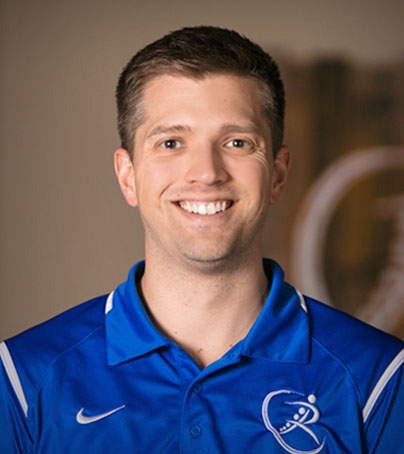
“Calvin will never be able to….” We have heard this phrase from far too many people during our 5-year-old’s life. You would think we’d be used to it by now, but it still makes us cringe. It has always been particularly rewarding for our family when he meets a milestone; mostly because Calvin has had to work a little harder to meet them than his siblings. Calvin has Down syndrome. It does not define him, but it makes some things a little more challenging. Part of our parenting strategy with all our children is to never put limitations on them. This strategy is particularly true with Calvin. We’ve been told by many people about all the things he will never be able to do. We don’t let those people spend much time around him. We want to teach our kids to see possibilities, not limitations.
Last week, my wife (also a PT), was meeting with a group of health care professionals about some research she wanted to do. The purpose of her research is to provide individual treatment to athletes who have a higher risk for injury than their peers. The hope is that she would be able to reduce their injury risk through this individualized treatment approach that most athletes – even at the top levels of competition – do not receive. One of the questions she got caught her off-guard:
This seems great, but it’s not really possible to provide individualized care and be profitable, is it?
It is scary how much this phrase has permeated healthcare. It seems like a large portion of us have given up. It’s easier to blame insurance companies and the government than it is to find a way to provide great service despite those challenges. Over the 10 years I have been in practice, I have seen this conversation change. It used to be:
X company chooses not to provide high quality, individualized care because they feel it is less profitable.
As a student or a young therapist, we generally knew who those companies were, and most of us avoided working there. Now the conversation has turned to:
It has become impossible to provide high-quality, individualized care. I despise this phrase.
Much like in parenting, if all we tell the next generation to focus on is the limitations and what cannot be done, they will never even look for new ways to achieve goals despite obstacles. I would never tell anyone it is easy to do. However, to simply dismiss the notion it can be done is extraordinarily dangerous. If we set the expectation for the next generation of health care professionals that “providing great care isn’t an option, give up on that.” That is exactly what they’ll do.
Great, individualized care can and should be provided, we simply have to go about it in different ways than we did 20 years ago. There is so much possibility in healthcare right now, but if we only focus on limitations, we’ll never deliver the level of care people deserve.

